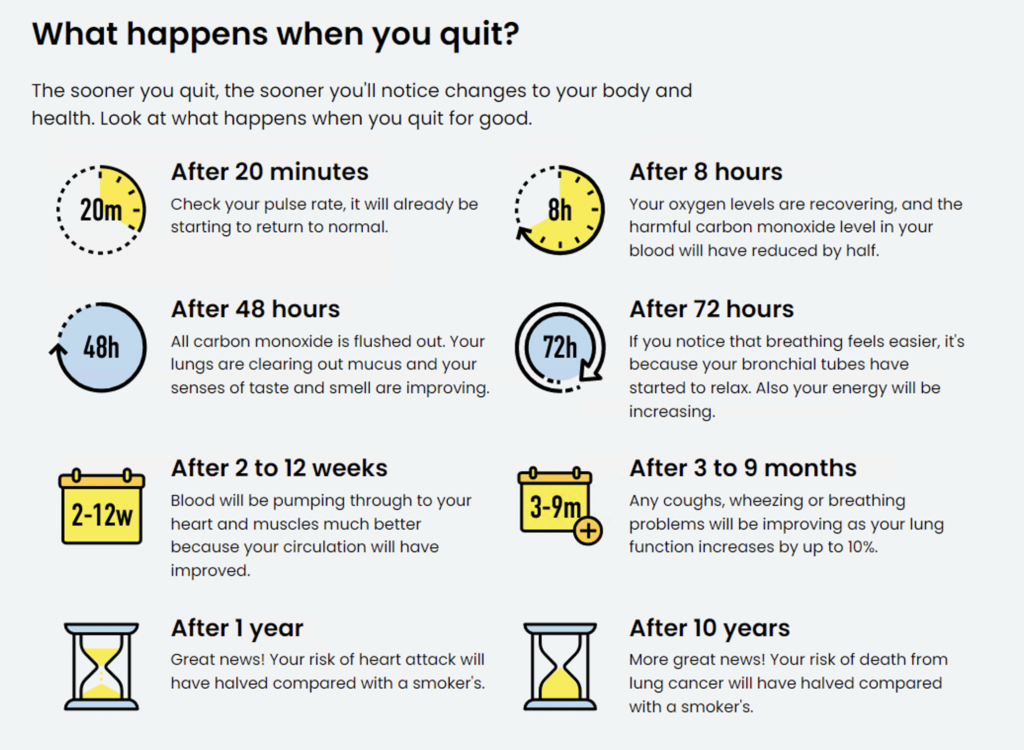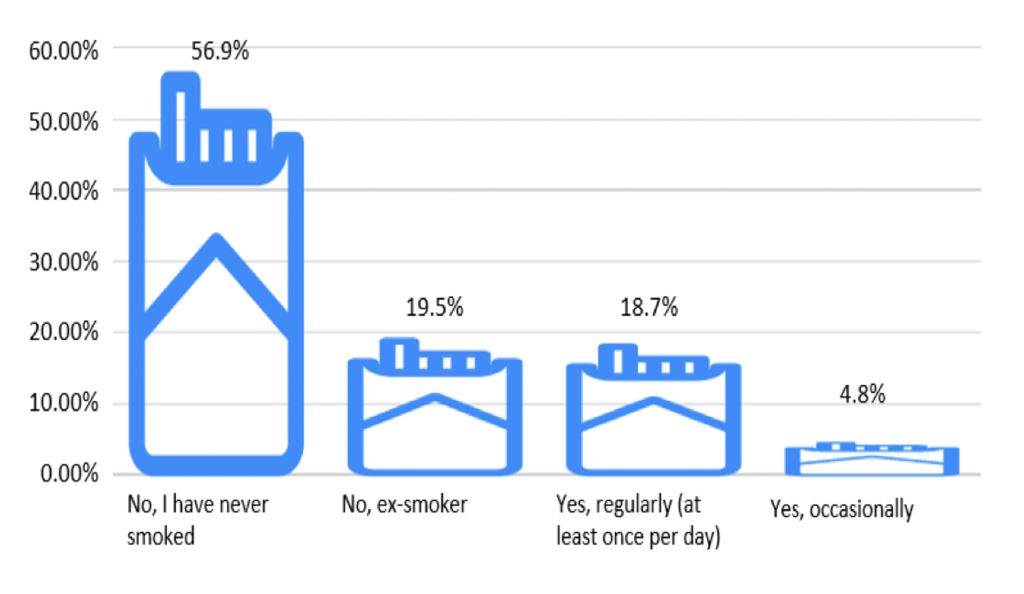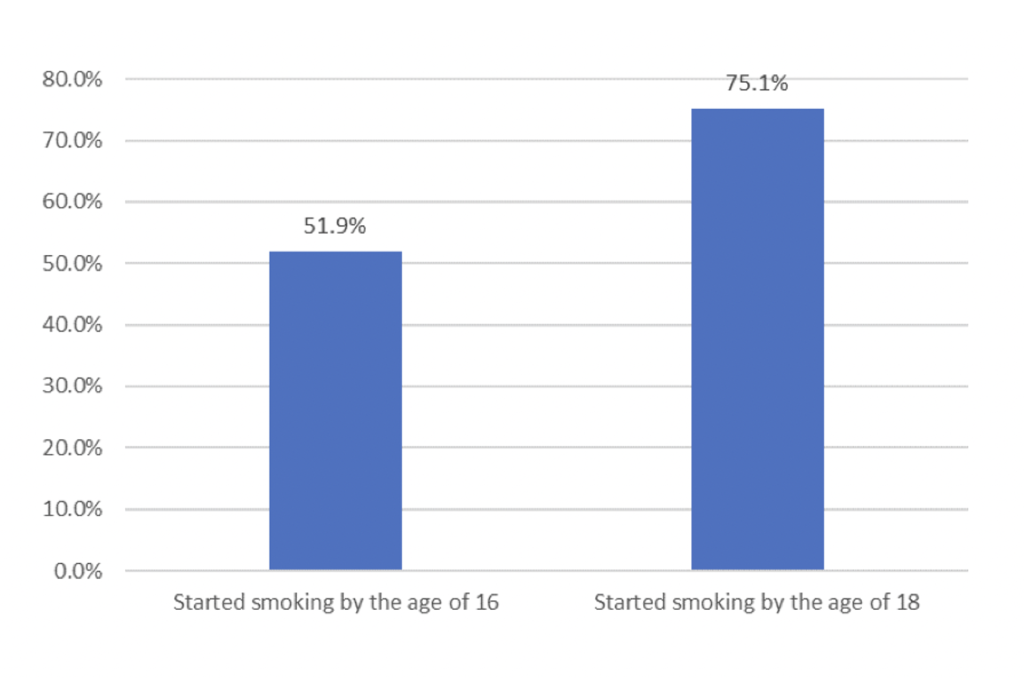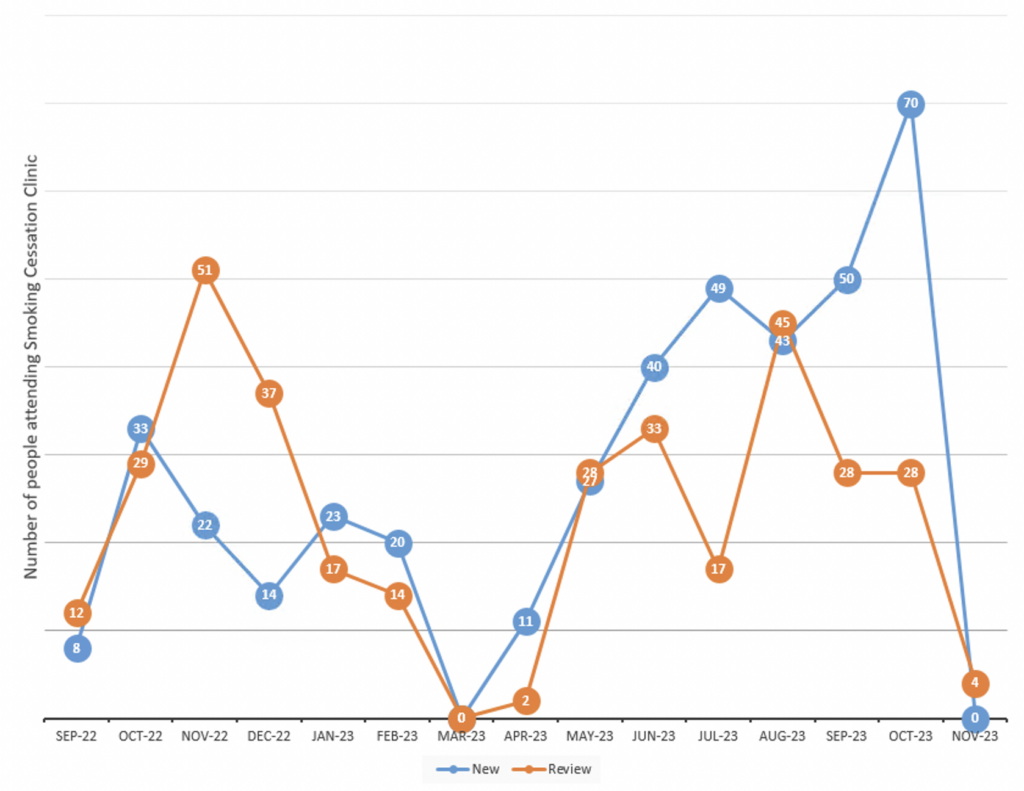Smoking causes around 70% of cases of lung cancer as well as heart disease, stroke, lung diseases, diabetes, and chronic obstructive pulmonary disease (COPD). The positive effects of stopping smoking can be felt almost instantly – with oxygen levels improving and blood carbon monoxide levels reducing. Quitting smoking lowers the risk for 12 types of cancer: cancers of the lung, larynx, oral cavity and pharynx, esophagus, pancreas, bladder, stomach, colon and rectum, liver, cervix, kidney, and acute myeloid leukemia (AML).
To discuss smoking cessation, contact the GHA Smoking Cessation service on 20052441.
Figure 1: What happens when you quit. Source: Better Health, National Health Service.

Smoking habits in Gibraltar
A survey conducted in 2021 established that 23.6% of a sample of the population currently smoke, with 18.7% smoking regularly. This prevalence is lower than expected, however, the figure is still significantly higher than the UK. The number of ex-smokers was also reported high at 19.5%. This could be attributed, in part, to the Gibraltar Health Authorities successful smoking cessation and health promotion campaigns. A 2015 survey found the percentage of current smokers to be significantly higher at 35%. There are several limitations to this data which mean actual figures may be higher than those reported. Response bias may prevent participants responding truthfully about their behaviours and so actual figures may be higher. A recent survey on 633 students found that the majority, 90.4%, have never smoked cigarettes. This is in line with current global trends as smoking rates have declined among teenagers in recent years.
Figure 2: Smoking habits in Gibraltar


Figure 3: Age first started smoking
Gender prevalence and smoking
The 2021 Health Survey found that 22.5% of males and 23.5% of female respondents were smokers. These findings vary from global statistics which report 35% of males being smokers, with just 6% of the female population.
Vaping
Vaping can be a useful tool for those who wish to stop smoking. However, vaping is not recommended for non-smokers and young people as it is not without risks. E-cigarettes contain several potentially harmful chemicals including acetaldehyde, acrolein and formaldehyde. These chemicals can cause lung disease and cardiovascular disease. Additionally, vaping causes increased risk of irritation to the respiratory tract. Additional evidence is still required to establish further health outcomes of vaping.
Vaping behaviour among children in Gibraltar
A recent survey was conducted on 633 Gibraltarian secondary school age students to establish the characteristics of youth vaping.
The survey found that 2% of students have reported vaping at some point in their lifetimes, with prevalence increasing with age.
- Students were most likely to report that their motivation for vaping was ‘out of curiosity’ (51.7%).
- Only 3.5% of students reported vaping as a tobacco replacement (3.5%).
- Girls are more likely to vape than boys, gender difference is smaller amongst older age groups.
- 3.2% of respondents have tried vaping aged 9 years or less.
- Only 4.7% of respondents were regular smokers before they vaped.
- In 2023, researchers found that 20.5% of children in the UK had tried vaping . In Gibraltar, the overall figure is 29.2% of all children surveyed.
Smoking Cessation
Figure 4 below shows the number of new and review appointments which were attended between September 2022 and November 2023. Data for March 2022 shows that 0 appointments were attended, however this is due to cancellations of smoking cessation clinics in March. Increased new patients attending the smoking cessation clinic in October reflect the impact of the ‘Stoptober’ Public Health Promotion campaigns.
Figure 4: Number of patients who attended Smoking Cessation Clinic, Primary Care Centre – Sept 2022-Nov 2023.

It is illegal to sell nicotine or vaping products to anyone under 18, or for adults to buy them on behalf of under-18s. If you have any concerns about stopping vaping, contact the smoking cessation service for advice 200 52441.
Page last reviewed : December 2023

